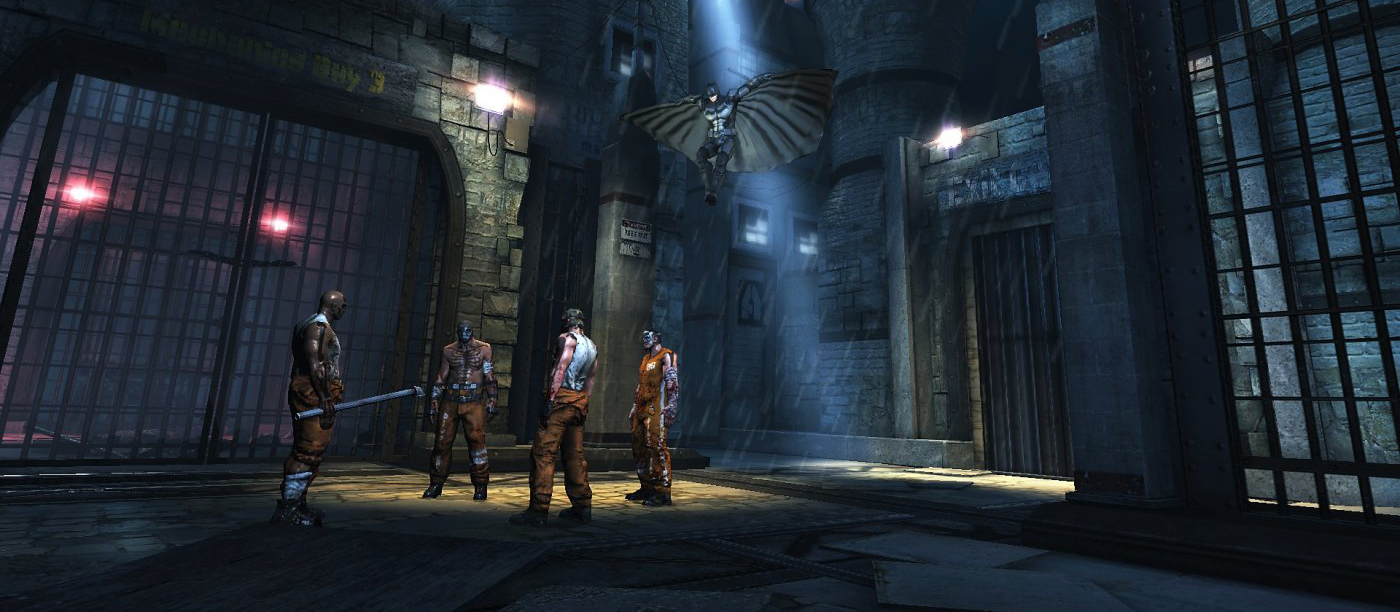GamesRadar+ Verdict
Pros
- +
Classic Batman combat works well in 2.5D
- +
Satisfying
- +
open-ended exploration
- +
Plenty of collectibles to track down
Cons
- -
Some infuriating trial-and-error boss fights
- -
Fewer stealth segments than you're used to
- -
Both versions have unique drawbacks
Why you can trust GamesRadar+
Can familiar gameplay retain its greatness when it loses half a dimension? According to Batman: Arkham Origins Blackgate, the answer is a caped, pointy-cowled yes. The Dark Knight's action-adventure experience has been grafted onto a 2.5D plane for the 3DS and Vita, keeping the Metroidvania vibes and bone-cracking combat satisfyingly intact. Some aspects may translate better than others, but as a handheld game, Blackgate is definitely worthy of the Arkham name and the quality it implies.
This particular dark and stormy night takes place three months after the events of Arkham Origins, though playing Blackgate's console big brother isn't a prerequisite. A mysterious explosion has sent the maximum-security Blackgate prison into chaos, and Batman's the only one capable of restoring order. Under the cover of night and shadow, the caped crusader has to systematically eliminate the prison's warring kingpins: the Joker, the Penguin, and Black Mask, each with a legion of henchmen just waiting to be pummeled. Thanks to the open-ended level structure, you can take back Blackgate's three main districts in whatever order you choose.
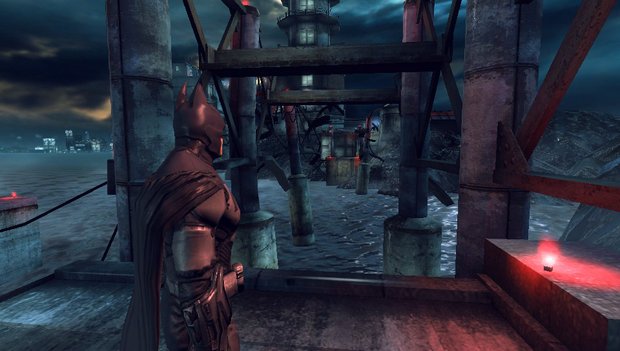
Most of Blackgate's plot is explained through comic-style cinematics, which look nice but are light on animation and therefore excitement. Everyone's fully voiced by their console counterparts, meaning more of Troy Baker's delightfully manic Joker, and Roger Craig Smith as Batman, doing an adequate impression of series mainstay Kevin Conroy. Blackgate also brings back Grey DeLisle as Catwoman, who's central to the story. Rather than requesting intel from Alfred or Oracle, Batman grudgingly relies on Catwoman for instructions on how to traverse Blackgate's facilities, cells, and sewers. It's an odd permutation of Batman's relationship with Selina Kyle--especially considering that they've only first met at the start of the game--but it's not a terrible distraction.
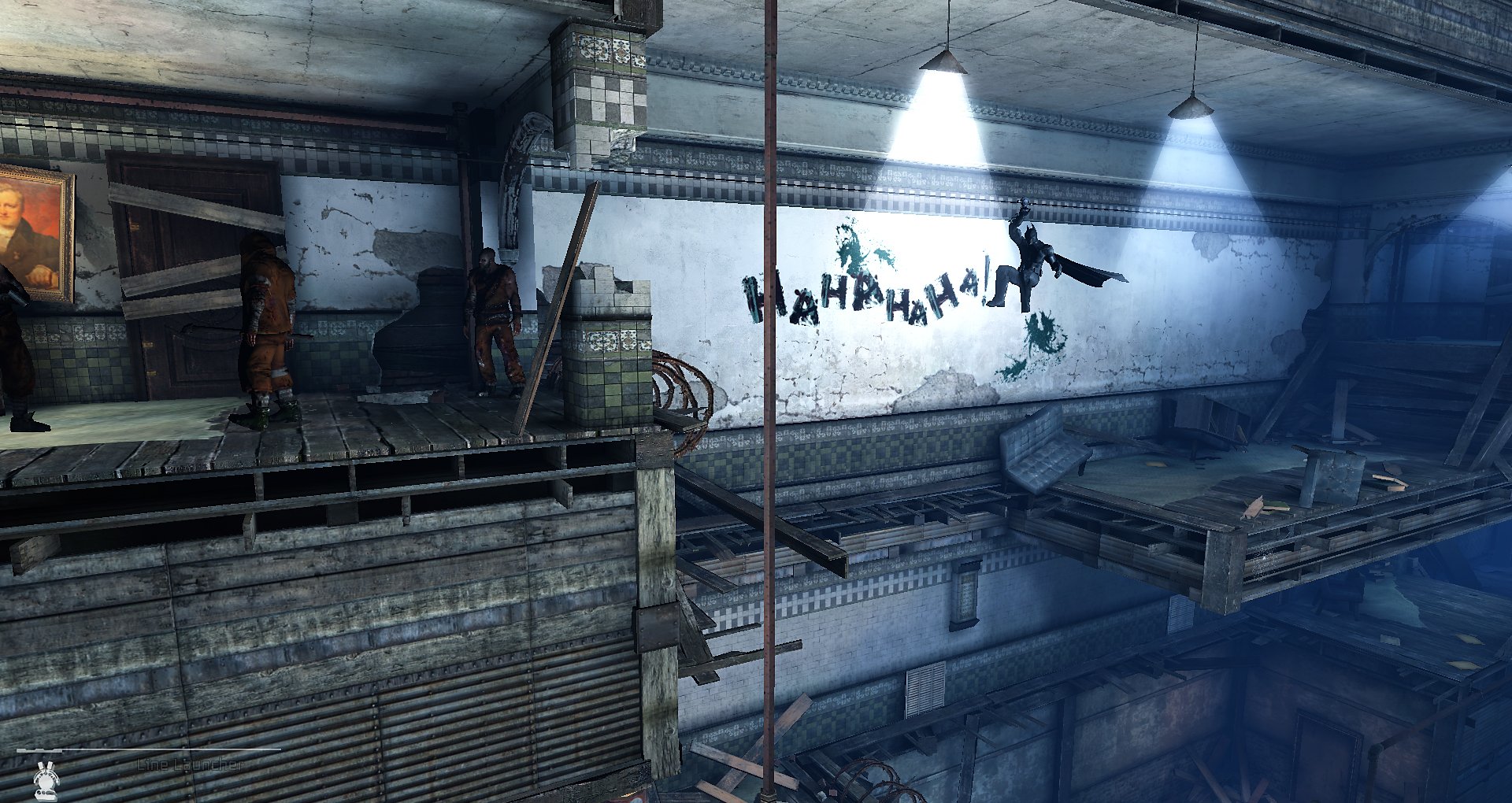
You'll be happy to know that the Arkham series' trademark--combo-heavy fist fighting--successfully made the jump to 2.5D. If you haven’t played any Arkham games, then A) you should really get on that, and B) you know that Batman's acrobatic fighting style is immensely satisfying, putting you in a trance-like state of violent bliss once you've mastered it. Encountering a room full of thugs feels more like a treat than an annoyance; a chance to put your counter-timing skills to the test, or use a new gadget to knock down unsuspecting henchmen. Unfortunately, upgrades in Blackgate are only unlocked via exploration, with no XP gains to speak of. That means whether you gracefully punch chins with the agility of a muscular ballerina, or get clownishly knocked around like a blubbering drunkard before a fight's finally over, it doesn't really matter either way.
While the series' signature action sequences made a nimble transition to handhelds, the stealth moments in Blackgate are few and farther between. There are definitely moments that capture Batman's predator-like approach to eliminating evildoers: snaring, choking out, or glide-kicking individual goons until none are left standing. But more often than not, stealth gameplay acts as a means to starting a fight, not ending it before it can even begin. And because of the (usually) side-scrolling vantage point, it's incredibly difficult to elude thugs once you've been spotted. This is painfully apparent in the boss fight against the Penguin, which is a frustrating ordeal. That kind of irritating trial-and-error is something that pervades most of the boss fights (and additional Rogues Gallery mini-boss cameos). They're not overly difficult, but you will die some needless deaths before you finally figure them out and can apply your knowledge. (Alternatively, you can consult our handy Batman: Arkham Origins Blackgate boss guide ahead of time.)
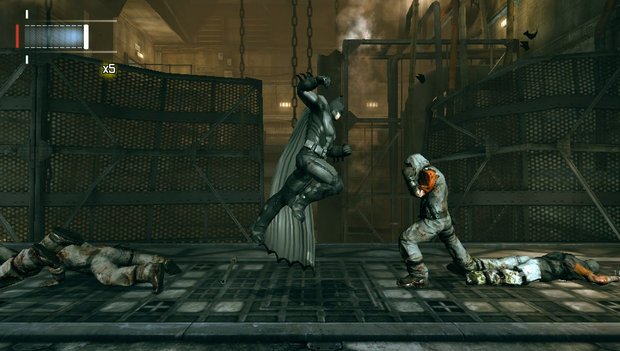
But exploration is as much a part of Blackgate as any of the Arkham games, and it's just as enjoyable as the combat. As you explore the nooks and crannies of the prison, you'll unlock familiar gadgets--like electrified Batarangs, the Line Launcher, and a Gel Explosives gun--that open up new pathways through spacious hallways and across metal catwalks. Finding said pathways is as simple as scanning your surroundings with the X-ray-like Detective Mode, just like you're used to in an Arkham game. The facilities are laid out in a way that minimizes aimless wandering; you'll constantly find yourself eagerly running and grapple-hooking your way towards the newest available avenue, once you've deduced the proper course.
Besides armor and gear upgrades, Blackgate tries to scratch that collectible-hunting itch with five-piece costumes and case-file clues scattered throughout the dusky environment. The costumes are cool references to comic runs like Red Son and Blackest Night, but their effects can be quite gamebreaking--for instance, becoming entirely invincible while wearing them. And while the clues do tell an intriguing story once you've pieced them together, trying to find all these little knickknacks is nightmarish. Chalk it up to the fact that they can't be seen outside of Detective Mode, and they're never marked on the map. But don't feel bad for skipping them--they only unlock pieces of concept art.
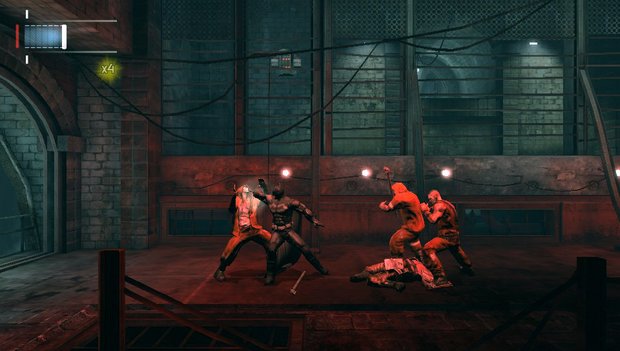
Both versions of Blackgate have their benefits and drawbacks. The Vita version has infinitely better textures and superior character models, which makes the graphics look phenomenal. The 3DS' visuals aren't pure guano, but when the camera zooms in for the last slow-mo punch of a fight, it's like looking at a PS1 game. On the flipside, 3DS players will love having a minimap that's visible at all times, the subtle depth of field effect, and Detective Mode controls that feel smoother. Having to poke your Vita screen to uncover hidden items will often obscure whatever you're looking for, like trying to play Where's Waldo when your thumb's obscuring any point of interest.
Blackgate doesn't overstay its welcome, clocking in around a lean 6 hours; completionists can expect to take closer to 8 hours tracking down every last object. And while much of Blackgate feels like an attempt to emulate bigger and better Batman games, it's still quite enjoyable in its own right. If walloping the Joker's face-painted gang or tracking down hidden items is your thing, you'll adore playing Blackgate on the go. Just remember not to smash your handheld into pieces during the Penguin boss battle.
This game was reviewed primarily on the 3DS, with playtesting on Vita.
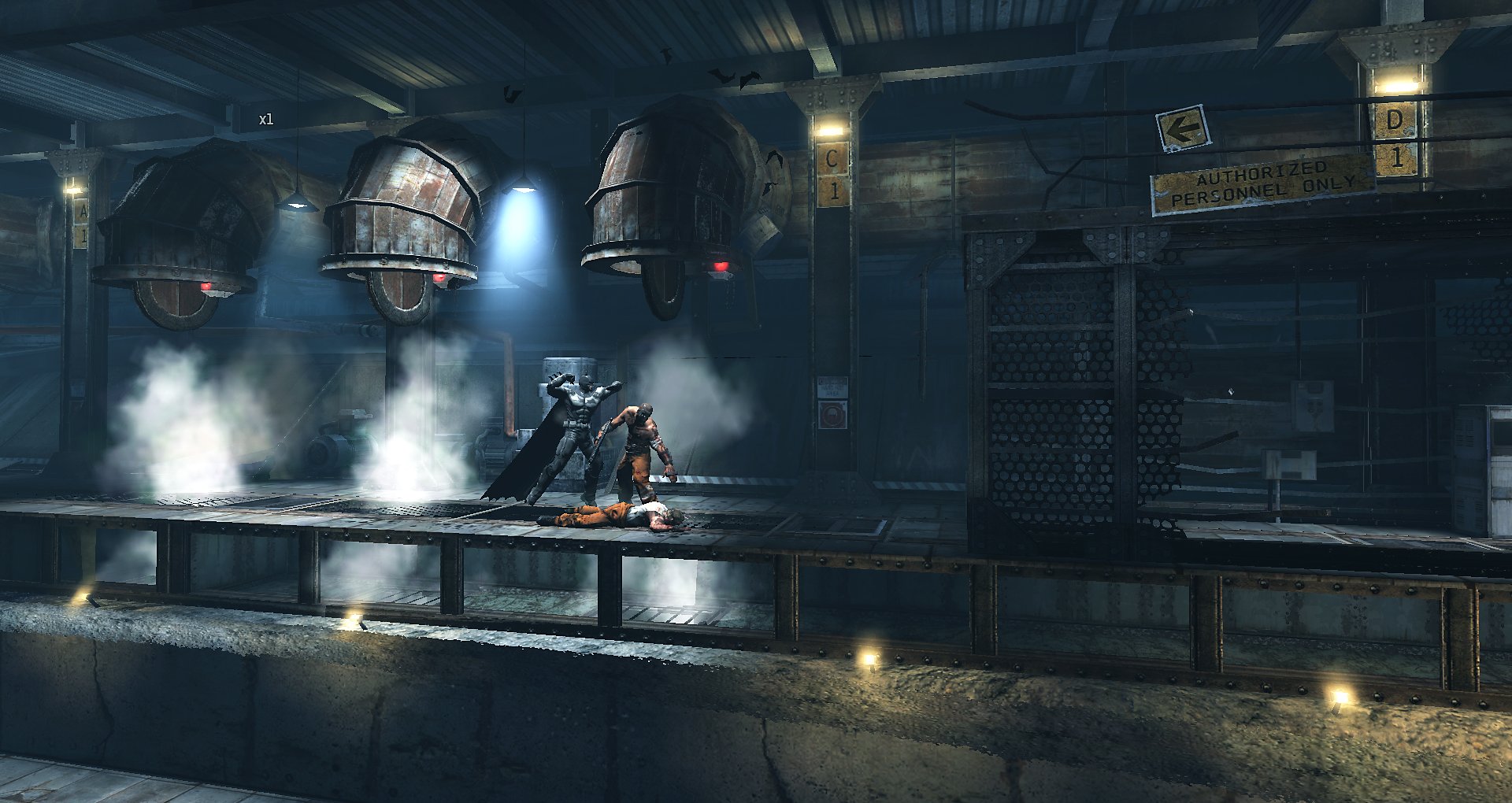
While Batman might not be at his best in 2.5D, Blackgate is a fun, somewhat flawed Metroidvania that lives up to the Arkham name.
More info
| Genre | Action |
| Description | Batman: Arkham Origins Blackgate takes place after Arkham Origins, and is the first title in the Arkham series for handheld devices. |
| Platform | "Wii U","Xbox 360","PS3","PS Vita","3DS" |
| US censor rating | "Teen","Teen","Teen","Teen","Teen" |
| UK censor rating | "","","","","" |
| Alternative names | "Arkham Origins Blackgate" |
| Release date | 1 January 1970 (US), 1 January 1970 (UK) |
Lucas Sullivan is the former US Managing Editor of GamesRadar+. Lucas spent seven years working for GR, starting as an Associate Editor in 2012 before climbing the ranks. He left us in 2019 to pursue a career path on the other side of the fence, joining 2K Games as a Global Content Manager. Lucas doesn't get to write about games like Borderlands and Mafia anymore, but he does get to help make and market them.
